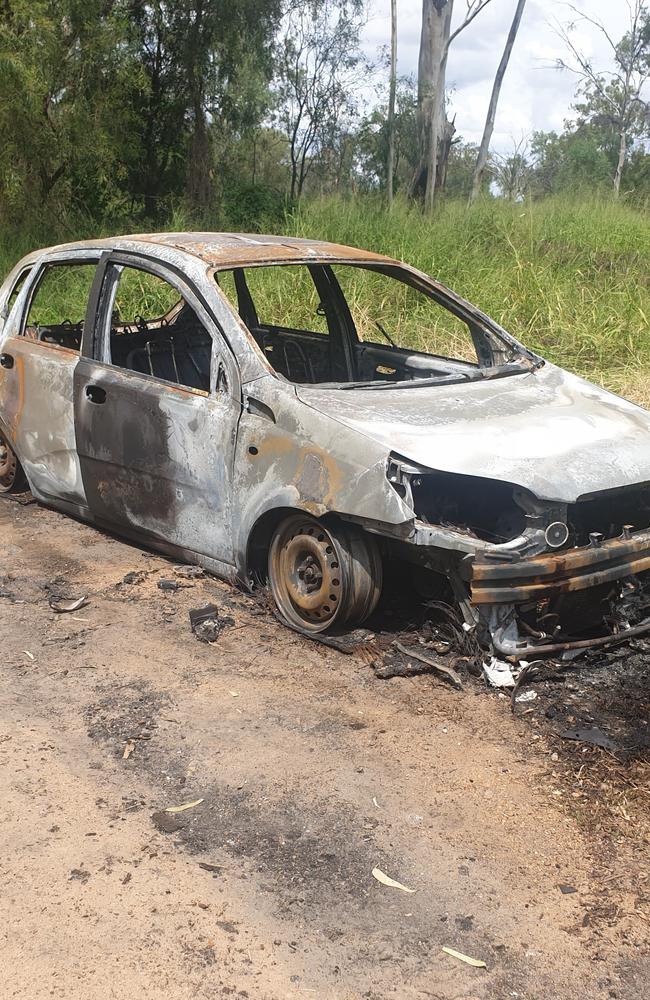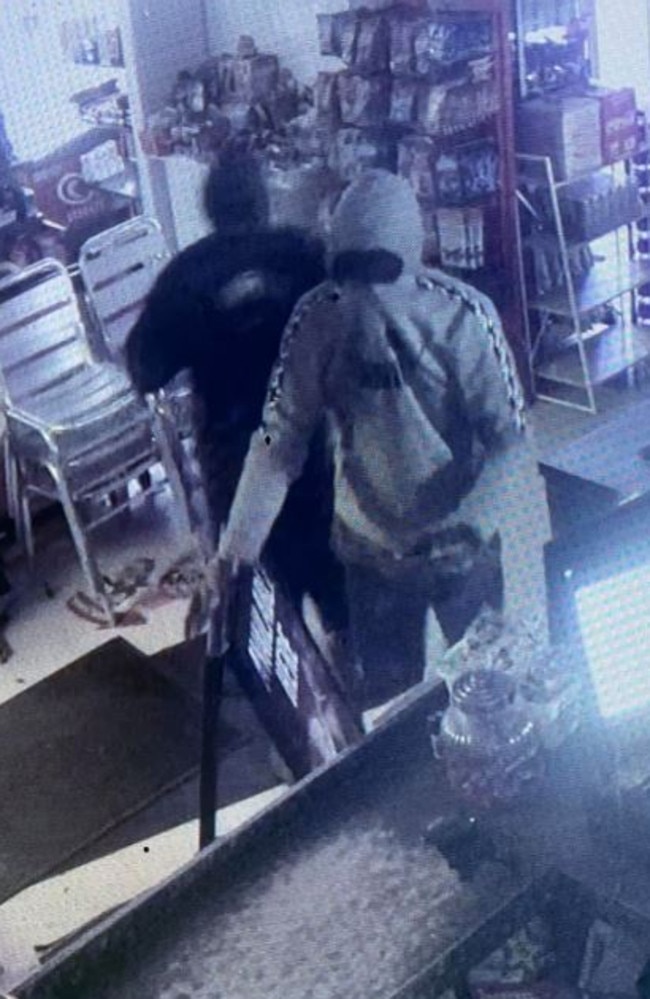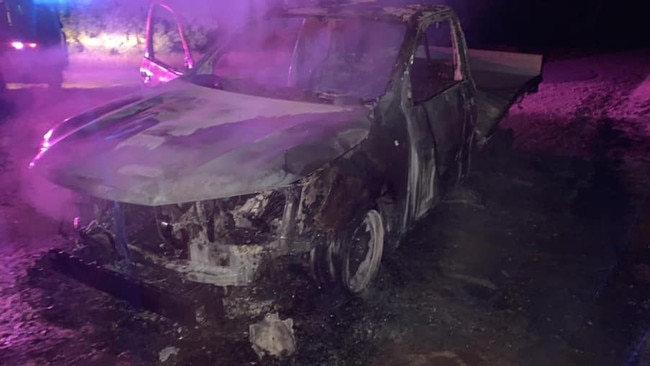Goondiwindi residents take to social media to fight back against youth crime crisis
Residents of the Queensland border town of Goondiwindi are living in fear as brazen young crims film themselves stealing cars and smashing their way into businesses. WATCH THE VIDEOS
Police & Courts
Don't miss out on the headlines from Police & Courts. Followed categories will be added to My News.
Cars being stolen and then torched almost nightly, homes and stores broken into and reckless driving caught on film – Goondiwindi residents are so fed up with crime they’re turning to social media to fight back.
Residents of the Queensland border town - about 220km southwest of Toowoomba - have started petitions for Ministers to address the crime in their area, with one petition claiming crime had “doubled” in the last two months.
“Most notably the increase in unlawful entry and destruction of property has got to a point where there is serious concern about the safety of offenders, victims and families,” the petition reads.
“Last week a car was stolen 6 out of 7 days. Something must be done.”

Locals are taking matters into their own hands, creating the community Facebook page Goondiwindi Angels Alert Group to warn others of current crime in the area.
Many people have shared photos and videos of stolen vehicles which were later found torched on the side of roads.
One man wrote that he woke up to a video of his car, which was stolen, set on fire. He said the offenders were “stupid enough” to post a video of their crime on Snapchat.
“I’m over nothing being done,” he said.
A TikTok page has also been created, where young offenders are filming and boasting their crimes. Some videos show juveniles driving stolen cars at alarming speeds on the wrong side of the road while there is oncoming traffic.

Videos of teens breaking into homes and speeding away from police officers have also been shared.
Some of the videos uploaded by the group have a warning for viewers that reads: “The action in this video could result in serious injury”.
Goondiwindi Mayor Lawrence Springborg released a statement yesterday saying the recent series of break-ins and thefts is “upsetting and frustrating” and that he “shares residents’ concerns about the flagrant disregard of other people’s property, rights and everything they’ve worked for”.
He said Queensland Police Service has confirmed it has reassessed its local police resourcing in Goondiwindi and will implement a plan to address local crime using district resources.
“The QPS is also working with New South Wales police to enhance cross-border collaboration and address jurisdictional issues and responsibilities,” the statement read.

“I will also be personally meeting with senior police officers from both states to advocate on behalf of our community.”
Mr Springborg said he believes it is an “extremely small group” of individuals behind the crimes.
“The relentlessness of their actions might make it seem like a large number is responsible, but the advice is that we are dealing with a small, core group of reoffenders (which is why we need the courts to uphold justice and deliver adequate consequences and deterrents),” he said.
In a statement released to media on Tuesday, QPS stated the Darling Downs District management will meet with representatives from the New South Wales Police Force and other stakeholders later this month to discuss the instances of property crime in Goondiwindi.

“Southern Region regularly introduce strategies utilising regional and state specialist units to help address identified crime, public order and road safety issues,” the statement read.
“The QPS initiated a strategic review of the organisation to identify opportunities to drive improvements, efficiency and effectiveness across the organisation.
“The Service Alignment Program will ensure the QPS provides an efficient and effective response to the Queensland community, both now and into the future as demand for our service increases,” the statement read.
“A shift towards prevention-based policing will ensure those issues identified as specific community concerns are identified and responded to locally with support from specialist staff where needed.”


